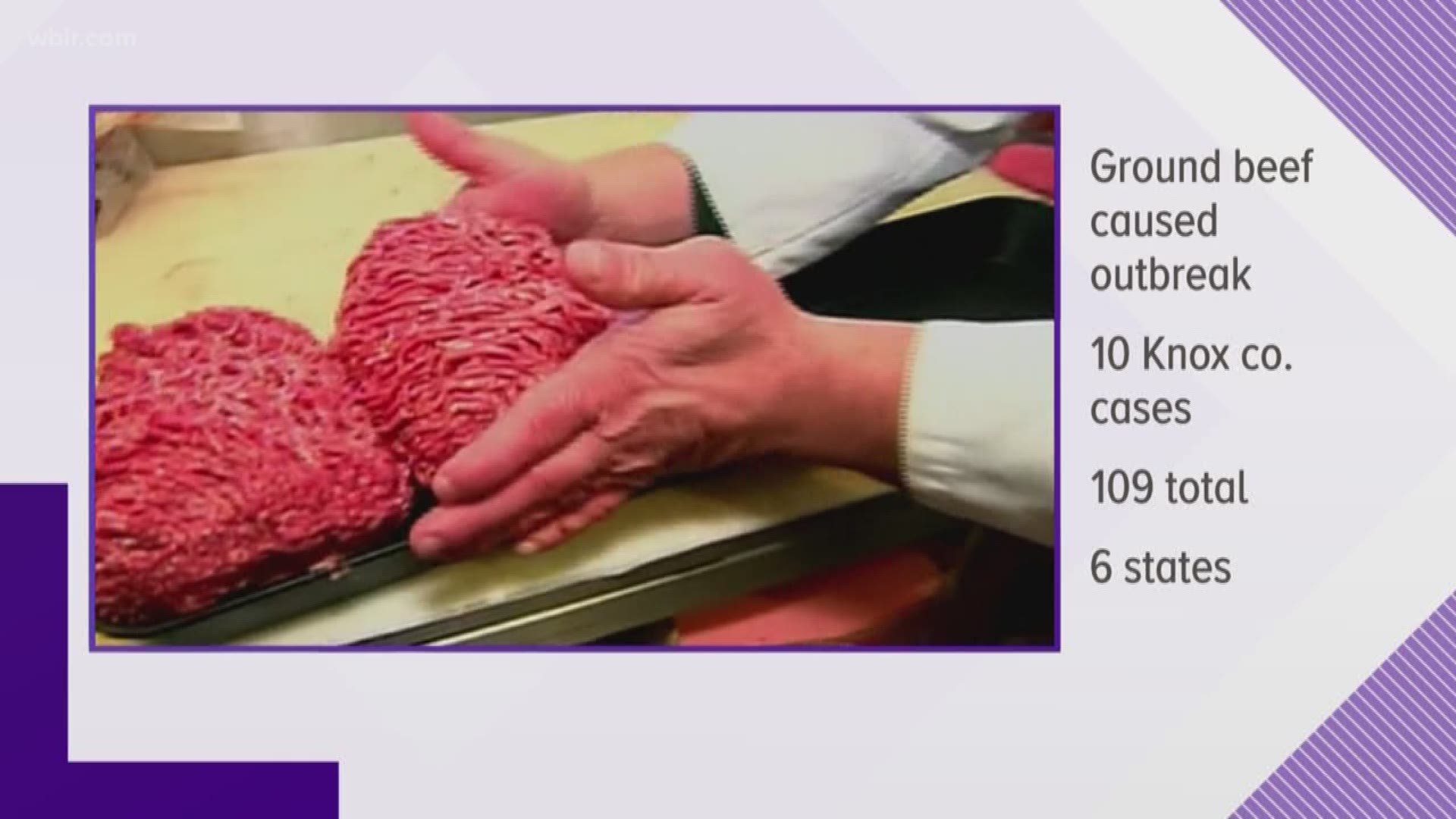The Center for Disease Control and Prevention announced Friday that the multi-state E. coli outbreak that has infected a total of 109 people including 28 in Tennessee may be linked to ground beef.
Preliminary epidemiologic information suggests that ground beef is the source of this outbreak, according to the CDC.
People affected in this outbreak reported eating ground beef at home and in restaurants. The center said at this time, no common supplier, distributor, or brand of ground beef has been identified.
"Traceback investigations are ongoing to determine the source of ground beef supplied to grocery stores and restaurant locations where ill people ate," the CDC said.
The CDC is not recommending that consumers avoid eating ground beef but said they should handle it safely and cook it thoroughly to avoid foodborne illness.
"At this time, CDC is not recommending that retailers stop serving or selling ground beef."
CDC said it's a rapidly evolving investigation and it will provide updates as more information becomes available.
No cases of hemolytic uremic syndrome (HUS) or deaths have been reported, according to the CDC.


Knox County Health Department officials confirmed to 10News that the county had recorded 10 cases of E. coli as of April 11.
There were a total of 28 cases in Tennessee as of April 12 that were part of the outbreak, the CDC said on its website.
54 other cases had been recorded in Kentucky, 17 in Georgia, seven in Ohio, two in Virginia, and one in Indiana.
In most of the cases recorded by the CDC, the illness onset between March 8 and March 23, although there was a spike around March 29.
Cases of the illness that started as far back as March 15 also may still not yet have been reported, the agency noted.
Since Jan 1, 2019, Children’s Hospital treated 13 children sickened from E. coli infection, according to UTMC spokesperson Erica Estep.
"Of those 13 it is unclear how many may be connected to the E. coli 0103 strain from the most recent outbreak. The CDC and state health dept. are investigating," Estep said.
The CDC said consumers and restaurants should always handle and cook ground beef safely to avoid foodborne illness. Thoroughly cook ground beef and any food that contains ground beef to kill germs.
Wash hands with soap and water after touching raw ground beef. Use hot, soapy water or a bleach solution to wash kitchen items that touched raw meat.
- Handling ground beef:
- Keep raw meat separate from foods that won’t be cooked before eating.
- Wash hands with soap and water after touching raw meat and before touching other kitchen items.
- Thoroughly wash countertops, cutting boards, plates, and utensils with hot, soapy water or a bleach solution after they touch raw meat to avoid contaminating other foods and items in your kitchen.
- Cooking ground beef:
- Don’t eat raw or undercooked ground beef.
- Cook ground beef hamburgers and mixtures such as meatloaf to 160°F internal temperature. Use a food thermometerExternal to make sure the meat has reached a safe internal temperature. You can’t tell whether meat is safely cooked by looking at it.
- For hamburgers, insert thermometer through the side of the patty until it reaches the middle.
- Place the thermometer in the thickest part of the meat for foods like meatloaf.
- For casseroles and for sauces that contain ground beef, such as spaghetti sauce or sloppy joe, check the temperature in several places.
- After cooking ground beef, refrigerate within 2 hours and use within 3 to 4 days.
- When ordering at a restaurant, ask that ground beef hamburgers and mixtures be cooked to an internal temperature of at least 160°F.
- Storing ground beef:
- Refrigerate or freeze raw ground beef within two hours after purchase.
- If you refrigerate raw ground beef, use within 1 or 2 days.
- Store ground beef in a plastic bag on the lowest shelf of your refrigerator.
- If you break large packages of ground beef into smaller packages for freezing, wash hands with soap and water after touching the meat or its packaging, and before touching other surfaces.
- Use hot, soapy water to clean the area where you divided the ground beef, including kitchen counters and utensils.
- Label your packages with the date they were placed in the freezer and where you purchased the ground beef.
- Thawing ground beef:
- The best way to safely thaw ground beef is in the refrigerator. Cook or refreeze within 1 or 2 days.
For more information about how to handle ground beef safely, call the USDA Meat and Poultry HotlineExternal at 1-888-MPHotline (1-888-674-6854).
If you have an infection, the CDC says to:
- Talk to your healthcare provider.
- Write down what you ate in the week before you started to get sick.
- Report your illness to the health department.
- Assist public health investigators by answering questions about your illness.
How can you avoid an infection? The CDC says to wash your hands frequently, cook meats thoroughly to kill germs, thoroughly wash food prep areas or utensils that touch raw meat, wash fruits and veggies before eating and avoid any raw milk or unpasteurized dairy or juice products.
Last but not least, don't prepare food or drinks for other people if you yourself are sick.
For more information from the CDC, click here.

